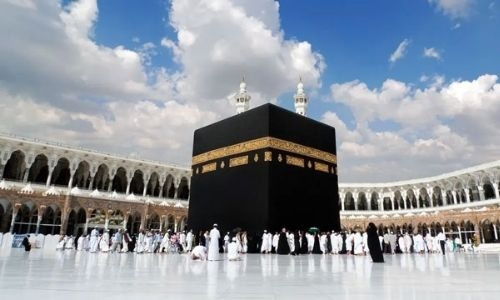Significance of the ninth month of Islamic calendar
Agencies | Manama
The Daily Tribune – www.newsofbahrain.com
Ramadan is the holiest month of the year in Islamic culture. For Muslims, it’s a time for spiritual reflection and growth, to help those in need, and to spend time with loved ones.
It’s also a time when Muslims around the world fast during daylight hours for the whole month of Ramadan. Read on to find out more about Ramadan traditions and customs, and why it’s so important to the Islamic faith.
Ramadan is the ninth month in the Muslim lunar calendar. Muslims observe this sacred month of Ramadan to mark when Allah sent an angel to Prophet Muhammad to reveal the Quran, the Islamic holy book, in 610 AD. This revelation is known as the “night of power” or ‘Laylat Al Qadar’ in Arabic.
The beginning and end of Ramadan change every year as it’s based on the Islamic lunar calendar and the moon cycles. The start of Ramadan is determined by the sighting of the new crescent moon by religious leaders.
Although Muslim’s wait for the new moon’s appearance before announcing the first day of Ramadan, they can estimate the arrival. The month of Ramadan usually lasts between 29 to 30 days, depending on when the new crescent moon is sighted.
During Ramadan, Muslims aim to grow spiritually and become closer to Allah and their loved ones. They do this by fasting and abstaining from pleasures like smoking, drinking and sexual intercourse between sunrise and sunset each day.
Ramadan is also a time for unity and spiritual reflection and Muslims spend time praying, reciting the Quran and doing good deeds. They donate to charity, spend time with loved ones, and avoid lying, gossiping and fighting.
Fasting is important during Ramadan as it allows Muslim to devote themselves to their faith, get closer to Allah and learn patience and compassion. It’s about nourishing your soul, rather than only focusing on your physical body.
It’s also one of the Five Pillars of Islam which are the foundation of how Muslims live their lives (the others are faith, prayer, charity and pilgrimage to the holy city of Mecca). Fasting is usually done by all Muslims except those who are sick, pregnant, lactating, menstruating, elderly or travelling. If you miss fasting days you can make up for them throughout the year.
The fasting is done between sunrise and sunset. During this time, practicing Muslims are not allowed to drink water. Muslims usually wake up before dawn and eat a light meal known as suhoor.
They drink plenty of water at this time to see them through the day. After the sun fully sets, the fast is typically broken with water and dates, followed by prayers and a meal called iftar. A special three-day festival called Eid al-Fitr (the Festival of the Breaking of the Fast) marks the end of Ramadan.
It begins when the first sight of the new moon is seen in the sky. It’s a joyous occasion, with Muslims celebrating the end of fasting and giving thanks to Allah. During the three days, Muslims attend prayers in the morning and visit loved ones and neighbours.
Then they enjoy a delicious traditional feast with friends and family. Children are often given presents, and it’s custom to donate to those in need. As a symbol of unity, Ramadan is a time when Muslims from all over the world come together to celebrate their faith.
Cantaloupe in Honeydew Almond Soup
Ingredients Serves 4 • 9 oz. (250 g) honeydew melon (about one-quarter of a large melon), cut into chunks • 1½ Tbsp. sugar • 1¼ tsp. almond extract • 1 cup (8 fl. oz. or 250 ml) unsweetened almond milk • 9 oz. (250 g) cantaloupe (about one-quarter of a large melon)
Step 1 In a blender, combine the honeydew, sugar, almond extract, and almond milk and blend until very smooth. Chill until cold.
Step 2 Use a melon baller to scoop out balls of cantaloupe, or simply cut into small bite-size cubes. Keep chilled until ready to serve.
Step 3 To serve, pour ½ cup (4 fl oz. or 120 ml) of the honeydew almond soup into a shallow bowl and top with pieces of cantaloupe.
Related Posts


